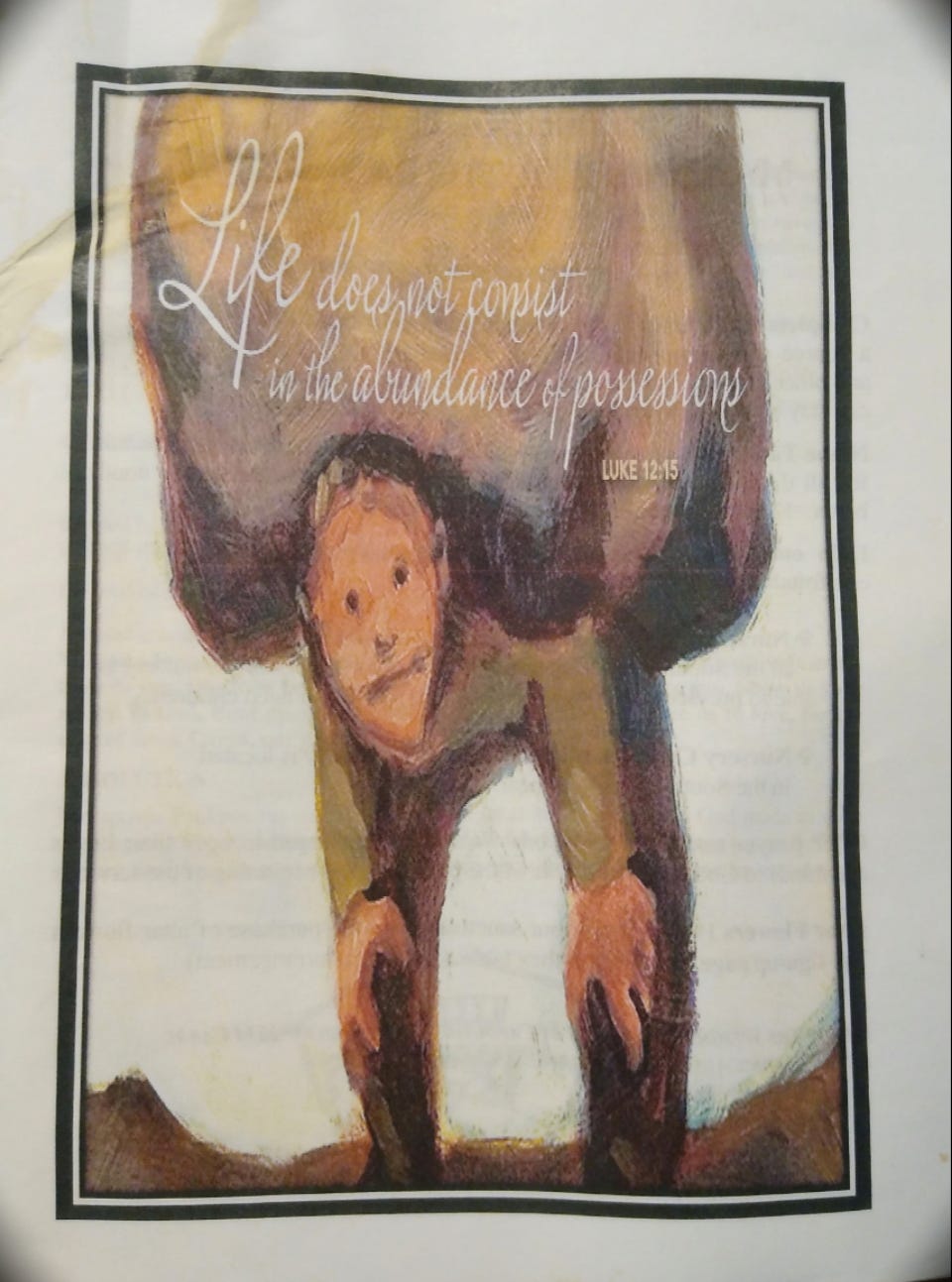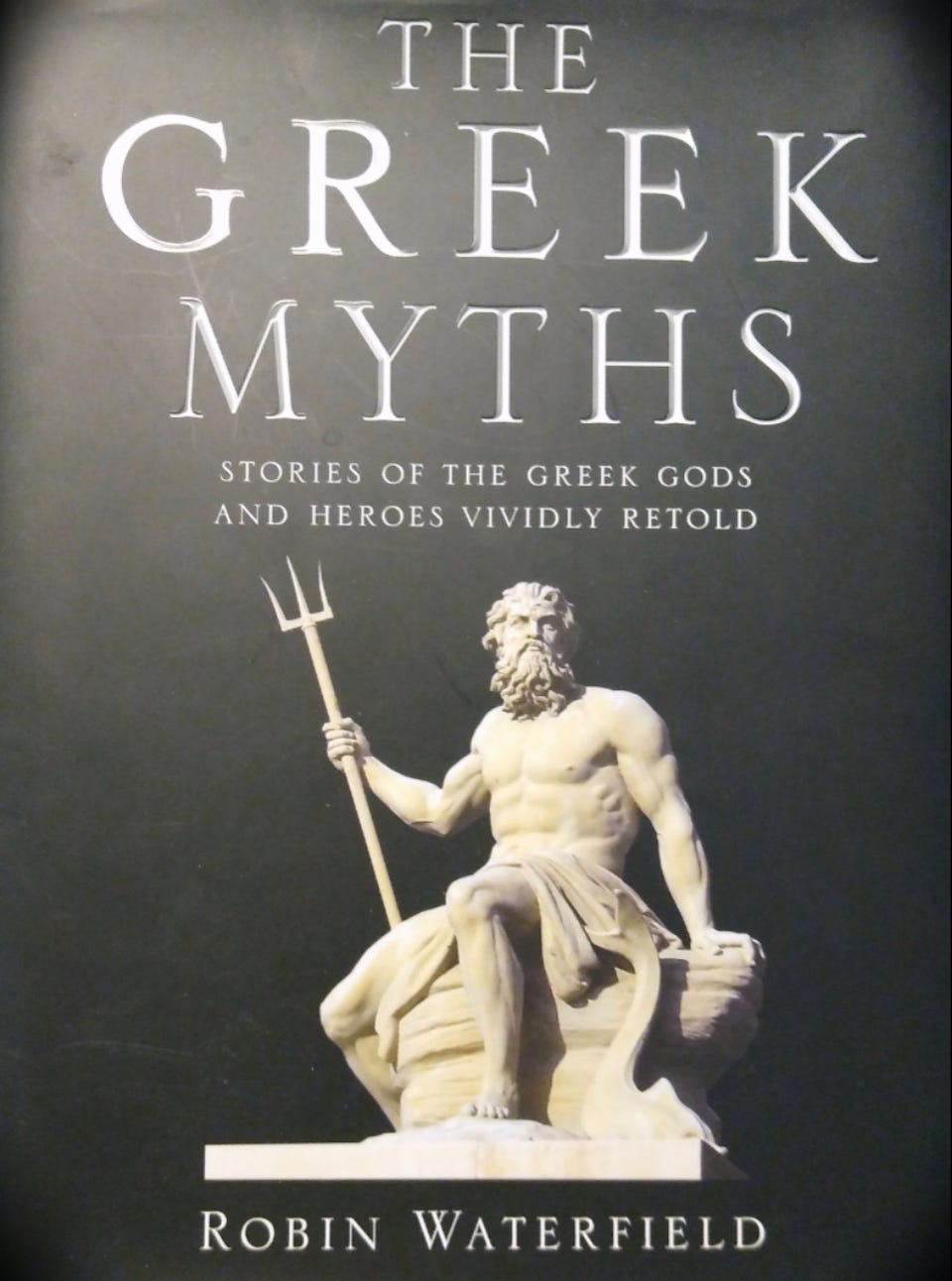Atlas Revisited
Another look at ancient Greek myth shows the Greek god’s battle and punishment are more relevant to the real world than ever before
It’s time to set the record straight.
Atlas has always received a pretty raw deal.
One of Greek mythology’s most famous tales is also one of its most creatively licensed. And while mythology is meant to be reimagined in different ways to drive home moral lessons, endless retelling of it over the centuries means that it’s hard to separate the actual myth from fiction.
While energy drink commercials portray poor Atlas as a hapless fool, religious organizations use him as a symbol of “original sin.”
Whether you realize it or not, Atlas has probably been a part of your life in more ways than one from the time you were a young child.
But was the Greek god in question really an idiot? Was he banished to purgatory as a representation of man’s supposed innate corruption? Is it really the world he’s hoisted up on his shoulders for all eternity?
Today, let’s dive into the ancient tale of Atlas. Not only to showcase how relevant it is to the real world today but also to challenge the myth’s very essence, the characters involved, and the possible reasoning behind their burdensome choices.
Greek Mythology as Cultural Icon
Ancient Greeks loved mythological stories like Americans today love superhero movies.
While posters of Batman and Wonder Woman (another modern retelling of an ancient Greek tale) hang in bedrooms, offices, and game rooms of households across the country, Greeks had a penchant for adorning their decorations, from vases to sculptures, in scenes from these riveting tales.
The “Greek Myth” is an artform that has been around for almost 3,000 years. These creative works have not only stood the test of time, but they’ve heavily influenced the societies that embrace them. Ancient Greeks used the stories to teach their children about the origins of life and the dangers that come with it. Contemporary cultures enjoy more modernized versions of these stories, much like the The Brothers Grimm fairy tales were sanitized for softer generations.
The Atlas of ancient Greece was a strong, scientifically-driven leader of a rebellion, condemned by his opposing force, Zeus, to hold the heavens up above him for all eternity as punishment.
The Atlas of today appears to be a good-natured moron, endlessly pushing a boulder up a mountain, only to have it fall back down the hill again just as he gets close to the top.
The Golden Age of the Gods and the Battle that Took Them Down
Atlas was a Titan, one of the “elder gods” who ruled the heavens before Zeus ever assumed power. This didn’t sit well with Zeus. During the more gentle, just-natured reign of Titans like Prometheus, Cronus, and Atlas, their easygoing, fruitful ways towards the world earned their time period the nickname, “The Golden Age.”
Cronus was the leader of them all, and suddenly Zeus came along, challenging his position as ultimate authority.
In a literal tale as old as time scenario, Zeus saw to it that war ensued. As if things weren’t already bad enough in this mythical realm, Zeus was Cronus’ son.
The power-hungry god set out on a path to dethrone his father, forcing a divide between the old gods, the Titans, and the new gods who were trying to assume power.
Atlas, one of the original Titans, sided with Cronus, and fought on his behalf.
Unfortunately, the story goes that the Titans lost, ushering in a power vacuum for the tyrannical Zeus to take his self-appointed place as ruler of the heavens and Earth.
Instead of showing good will and seeking no revenge against the defeated Titans, he set about punishing them for their disobedience.
Atlas, one of the few who most challenged Zeus’ authority, was given a harsh punishment.
By order of Zeus, he was to be cast into a purgatory, relegated to the far corners of Earth to forever hold up the heavens by use of nothing but his own strength.
When these tales were constructed, Greeks thought of places like “the heavens” and Earth in spherical structures. Hence the globe-like sphere Atlas is portrayed to be holding up in visual depictions of his punishment.
Because of this, more modernized versions assume what he is holding up is the earth, therefore his archetype is often associated with carrying the weight of the world on one’s shoulders in contemporary renditions.
In reality, it's the heavens he’s holding up from co-mingling with Earth. For the gods, this was important. They didn’t want their realm getting all dirty from us low-life humans down here simply trying to figure out how to build a fire at the time (we can thank Prometheus for helping us out with that chore).
The Legacy of Atlas
After Atlas’ punishment, he becomes a side character in Greek myths only two more times.
The first time is when Hercules visits him after Prometheus, Atlas’ brother, tells Hercules his sibling knows how to get his hands on a few highly coveted “golden apples” of immortality.
Prometheus and Atlas were also once battle buddies, fighting alongside each other while trying to defeat Zeus. Prometheus, like Atlas was also punished, sentenced to lay chained at the top of a mountain having to deal with a pesky eagle pecking away at his liver every day, only to have the organ regrow each night in order for him to endure the pain once more the next day.
As a side note, I find it fascinating that as far back as 2,000-3,000 years ago, the story involved the choice of the bird eating the only organ in the human body that can regenerate itself. It wasn’t until the 19th century that more modernized medicine made this an official discovery.
When Hercules finally finds Atlas at the edge of the world, knowing the perilous journey ahead for the god of strength, Atlas offers to go retrieve the meticulously guarded apples for him.
Hercules agrees, temporarily propping up the sphere of the heavens on his own strapping shoulders.
When Atlas returns, our exhausted anti-hero tries to ditch Hercules, promising he’ll take the apples where they need to go.
It is with this ruse that suddenly, our god of steadfast endurance, our leader of a rebellion army, the god who gave humans the gift of astronomy, suddenly turns stupid.
Hercules easily tricks Atlas, telling him he needs to get a cushion for his shoulders before assuming his new role permanently. Atlas quickly takes the bait and repositions the heavens on his shoulders while waiting for Hercules to retrieve a pillow.
Hercules never comes back.
Atlas’ fateful journey ends with his encounter with Perseus, who at the point of finding him all alone still with the weight of the celestial sphere on his shoulders, has the head of Medusa in his possession.
The son of Zeus, Perseus was in need of shelter after slaying Medusa. When he asked Atlas for help, Atlas refused, remembering the prophecy that predicted one of Zeus’ sons would steal the “golden apples.” It could also be that Atlas had already been burned by Hercules, therefore was understandably a bit standoffish.
Supposedly, this angered Perseus. So he took out Medusa’s severed head from his pouch and showed it to Atlas, thus turning him to stone.
The legend goes Perseus turned him into a mountain range, the Atlas Mountains which still stand today in the country of what is now Morocco.
Challenging the Myth
Renaissance-era works often portrayed Atlas holding up a globed structure, thus, like I mentioned earlier, the commonly mistaken belief that he holds up the world.
If this simple mistake can become so ingrained in culture that it becomes a readily accepted truth, what else could and should be challenged?
Often regarded as a fool by contemporary retellings, this has become a symbolic archetype for those who challenge power. Atlas bravely and defiantly challenged Zeus’ draconian authority, and he didn’t only pay a physical price, but a symbolic one which paints those who oppose tyranny and evil as crazy, stupid, or the new en vogue attempted insult, “conspiracy theorist.”
Julian Assange is a current figure who has received the “Atlas” treatment. He bravely went against the powers that be to show rampant global corruption that puts freedom at risk every day, and he has been imprisoned, ridiculed, and figuratively put to death because of his rebellious actions.
How can a military leader, gifter of astronomy to humans, and god of endurance really be a hopeless idiot? Perhaps this served Greek society well when parents would retell the story to their children, ensuring that the process of politics was protected through fear of severe social ostracization by those in charge to any who challenged them.
When Perseus turned him to stone, making Atlas a beautiful, towering mountain range sprawling North Africa, perhaps it wasn’t punishment for trying to shoo him off. Perhaps Perseus was doing our weary fighter a favor, recognizing the agony he was under and offering him up a final respite.
Some form of respect had to be at the heart of Perseus’ decision. If he indeed had such great disdain for Atlas, why not turn him into a bland scattering of pebbles on the ground to be stomped upon by anyone traipsing along trying to get their hands on those damn apples?
You turn a god into a mountain range, you are paying homage to their legacy, not debasing it.
Atlas Reborn
The god of endurance has many contemporary cultural references, but perhaps none as obvious and eloquently shaped as Ayn Rand’s magnum opus, Atlas Shrugged.
It is with this passage in her spiritually inspiring novel that completely reinvents Atlas and the plight he faced for much of his existence:
“If you saw Atlas, the giant who holds the world on his shoulders, if you saw that he stood, blood running down his chest, his knees buckling, his arms trembling but still trying to hold the world aloft with the last of his strength, and the greater his effort the heavier the world bore down upon his shoulders - What would you tell him?"
I…don't know. What…could he do? What would you tell him?"
To shrug.”
A book about a man who challenges a dystopian government by stopping “the motor of the world,” the very title challenges almost 3,000 years of the Atlas legacy. Finally, we have an empowering version. One that frees Atlas from his chains and sets him rightfully upon the altar of his own life.
In his book The Greek Myths, writer Robin Waterfield states in the introduction, “There is no such thing… as the definitive version of any myth; in fact, the more famous a story became, the more versions there were of it.”
Rand retold Atlas’ thematic story with resounding skill. And readers agree. Much like ancient Greeks adorned their houses with decorations depicting the stories of these myths, countless bookshelves over the course of almost 70 years have housed around 10 million copies of the imposing novel.
In an increasingly Zeusian society, which inhumanely punishes those who challenge despotic rulers and draconian policies, Atlas is needed more than ever before.
The good news is, we must remember, Atlas wasn’t a person but a god. Therefore, he’s not someone to imitate but a spiritual and philosophical ideal to embody.
When evil knocks at your door, attack. When weary travelers are trying to find their way back to themselves, help them along by turning them to the light of the stars in the sky.
And most importantly, when society demands they burden you with the weight of an unearned punishment,
Shrug.
Stand tall.
And get back to climbing your mountain.






